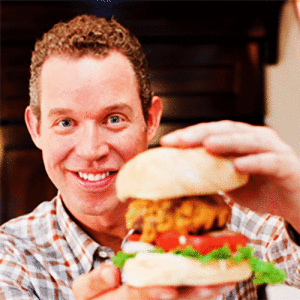A Balancing Act
Posted on December 8, 2015, at 6:50 p.m.
by Kristen Ellis.
Feeling like you’re a hamster running full-speed on a never-ending, spinning wheel? It could be because you’re forgetting three little words: work-life balance.
“Work-life balance is a fantasy.” “How to achieve balance? That is the million-dollar question.” “Work-life balance? Ha.” We’ve all heard statements similar to these.
However, without maintaining some sort of equilibrium and also placing emphasis on other parts of your life, the work you produce will never be at its best. It’s up to each person individually to find the level of balance that works best for them.
Read on for a gold mine of helpful advice from five professionals in various industries on what work-life balance means to them and what their process of achieving it was like.
Know yourself.
“When a book launches or a TV show comes calling, I can’t very well take time off — nor would I want to,” said Morgan Murphy, former travel editor and author of the “Off the Eaten Path” series for Southern Living. “So balance, to me, is taking time to get a good night’s sleep, planning a vacation that I can look forward to while in an intense work period and enjoying small parts of the day (like a good cup of coffee every morning).”
Amanda Coppock, senior account executive at Porter Novelli, echoed Murphy’s thoughts. “It is easy to be so eager to do your best when you first start your career that you don’t set good boundaries for yourself from the beginning. I would caution against this. Find what works for you. For me, it means going home at a reasonable hour and plugging back in during those times when it is crazy busy. For others, it means trying to get all the work done in the office and unplugging once they get home.”
With the constantly connected nature of careers that often rely heavily on digital and social media, it may seem daunting and unrealistic to try to take this advice. However, a recent study found that communications specialists and writers/content producers were among those that reported the best work-life balance numbers out of employees surveyed in related industries. With the option for many to work remotely when necessary, communications-related fields provide flexibility that many other careers cannot offer, which can be a game changer when used constructively. It’s all about setting personal boundaries on when and how you make yourself available; obviously 100 percent of the time cannot be “work time.”
Allison Schroeder, owner of Pomme Communications, a PR/social media agency in Cincinnati, Ohio, offered advice on how to stay sane in an article for SkilledUp.com. “The nature of our digital-heavy universe is increasingly demanding, forcing many of us to work even when technically ‘off the clock,’” said Schroeder. “In social media especially, it’s important to develop monitoring and response strategies so that we don’t find too much of our time eaten away by a stray tweet here or there.”
Many companies also offer incentives and embrace philosophies that are employee-centric to help their people maintain well-rounded lifestyles.
“At Porter Novelli, our leaders are passionate about the service-profit chain,” Coppock said. “This means that when a company invests in its people, it gets focused employees who provide great client service, which leads to loyal clients. Porter Novelli invests in us in many ways — from providing professional development opportunities to flex days in the summer to the ability to work from home.”
Recognize when to buckle down and when to step away.
Some days will require more of you than others. That is an inevitable fact of any part of life. The important thing is to be cognizant of this and to take those hectic moments in stride.
“There are going to be times when work gets crazy, whether you are in agency or corporate,” Coppock said. “Keep in mind, ‘this too shall pass.’ One thing I’ve learned in agency is that there are certain times of the year, or seasons for clients, when more of your time is required, and you may feel that you are ‘on’ 24/7. You may lose a bit of your work-life balance during those times, but know that you can get it back once things slow back to the normal busy rate (as opposed to the crazy busy rate).”
Even when you’re determined to really prove yourself at work, particularly early in your career when being the first one in and last one out may seem like the golden road to CEO status, it’s important to remember that you must set boundaries.
“The constant struggle is one of personal pride and desire to achieve in my career versus the quality of my personal life,” said Peter Frohmader, marketing director at Jackson Hospital. “After some true introspection, I had to come to a personal decision to place at least equal value on myself and my non-business relationships.”
Siarra Swalve, health and social impact intern at Porter Novelli, had a similar experience. “The process was hard for me, especially because I am so passionate about the work I do,” said Swalve. “It is important to rejuvenate and make time for yourself, though, because when you are at your best, your work is your best.”
It’s important to remember that you are more than your career. Don’t let the other aspects of life that bring you joy totally take the back burner, even when you feel like you’ve been in “work zombie mode” for a few days. Successfully proportioning your time among all the things important to you is key.
Take time off.
An article by the Guardian recommends setting aside specific blocks of time and dedicating them to accomplishing focused tasks with minimal distractions. This is because, as research has shown, “we check our phones every six and a half minutes, risking work emails chipping into time that should be kept free.” Hearing the “ping” of a new email coming in doesn’t mean you should feel the need to stop everything and respond right away.
“Just because someone else deems something a priority doesn’t mean you should too,” said Loretta Penn, former president of Spherion Staffing Services, in an article by Forbes regarding this dilemma.
Coppock had some similar insight. “Remember, when you are on vacation, take that time to recharge and not check your email. It can be hard, but it’s worth it to come back to the office ready to hit the ground running again.”
Remember that life ≠ work.
“The older I get and the more life experiences I have, I realize that life is too short,” Frohmader said. “I try to stay as organized as possible at work using lists and tracking software to manage projects; then I make myself leave work at a reasonable hour. There will always be more work, but you will never be able to get back the important moments in your life.”
Charles Scribner works as the executive director of Black Warrior Riverkeeper, a nonprofit dedicated to improving public health, wildlife habitat and recreation throughout a 17-county Alabama watershed. He agreed that taking time for the other joys in life is imperative to being successful professionally and staying happy in your personal time.
“It helps me to remember that I cannot win all the time — not even Alabama football does that — and that I am blessed with God’s grace and a loving family no matter what happens at work,” Scribner said. “There is an exhilarating freedom in that holistic perspective, one that frees me to do my best every day while enjoying the process without undue anxiety over outcomes.”
“Enjoying the process” — that is a key part of the true essence of work-life balance. When you’re constantly refreshing and trying to stay connected with work emails, meetings and project updates, you might forget to stop and enjoy the view.
“It certainly makes me more productive when I can step away from work and gain perspective,” Frohmader said.
Forbes’ article further drives this point home: “Allow yourself to daydream in the subway or appreciate good weather on your walk to work. If you don’t allow yourself pockets of personal time, you’ll become too burned out to fully appreciate any part of your life.”
And above all, pick a job that makes you happy so that when you are working, it doesn’t truly feel like “work.”
“There is truth in the line, ‘When you love what you do, you’ll never work a day in your life,’” Scribner happily agreed.




